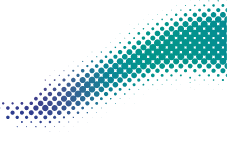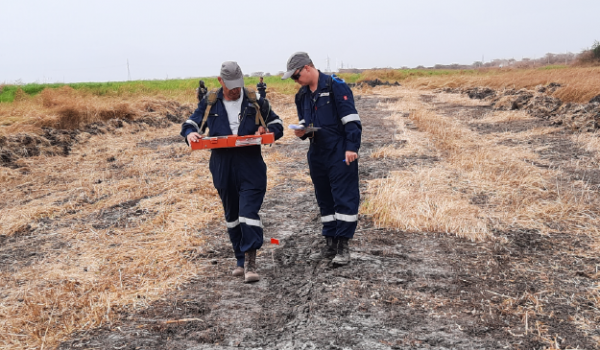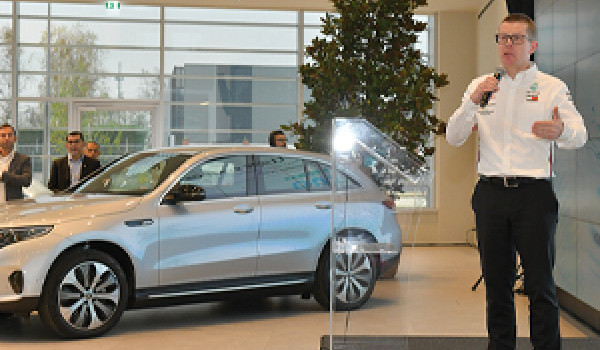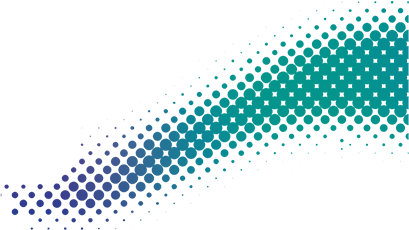Cancer strikes fear in the hearts of many and is given intimidating names like the Big C. The truth is, great progress has been made over the years in the study of the disease, and, if detected early, it can be treated.
19/12/2019 • 7 mins read
Leading the Way in Cancer Research
Brigitte Rozario

Although the number of deaths caused by cancer is increasing, contributing factors for better survival rates are research, advances in treatment, growing awareness, and earlier detection. Cancer Research Malaysia (CRM) Chief Executive Officer Datin Paduka Professor Dr Teo Soo-Hwang believes that more can be done to improve this ratio.
She is optimistic about a future where cancer can be controlled, but to arrive at that juncture, more needs to be done today to compile the necessary data to improve early detection, provide the best treatment options and even find cures, where possible.
“If we stop all research today, we will find that because of the ageing population and the different lifestyles, we would have more cancers in the future but no response to that increasing incidence. We need to do something to control cancers more effectively,” she says.
She explains that cancer is now one of the most common causes of premature deaths in the world. In 2018, the World Health Organisation reported that 18 million people were diagnosed with cancer and 9.6 million people died because of it. Of that, about 47 per cent of the cancer incidences was among Asians, and about 57 per cent of deaths was in the Asian population. Asians have a lower risk of cancer but a higher risk of dying of the disease partly because we have the cancers that are hard to treat and with low survival rates.
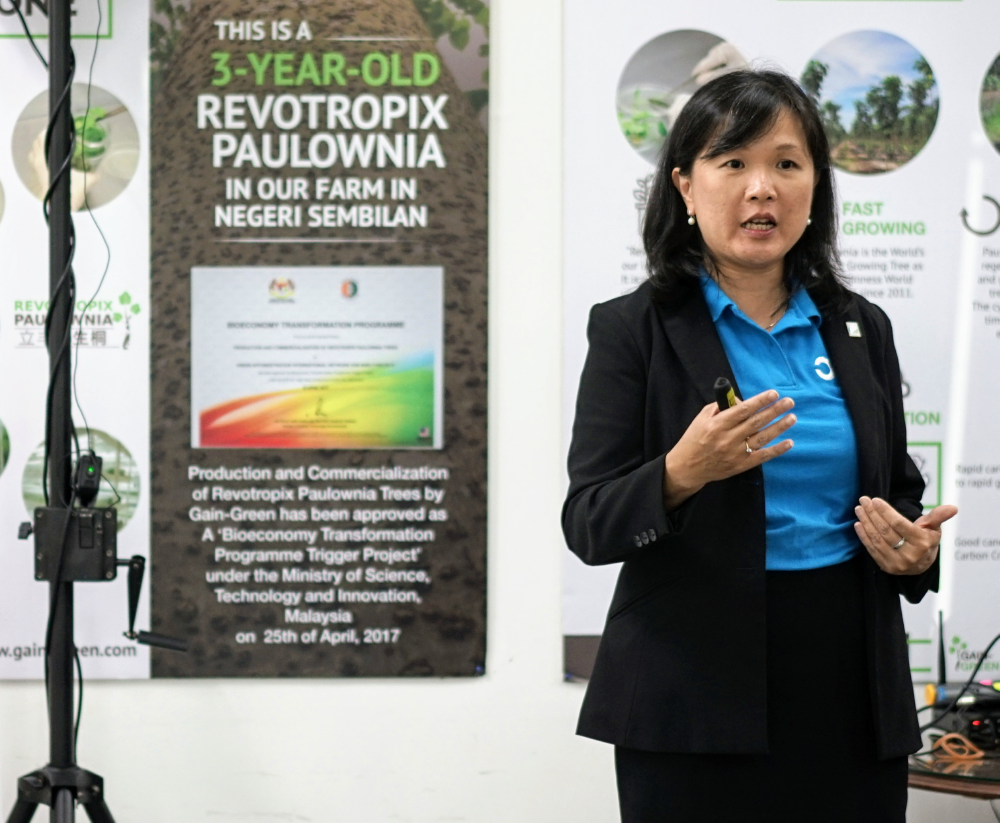
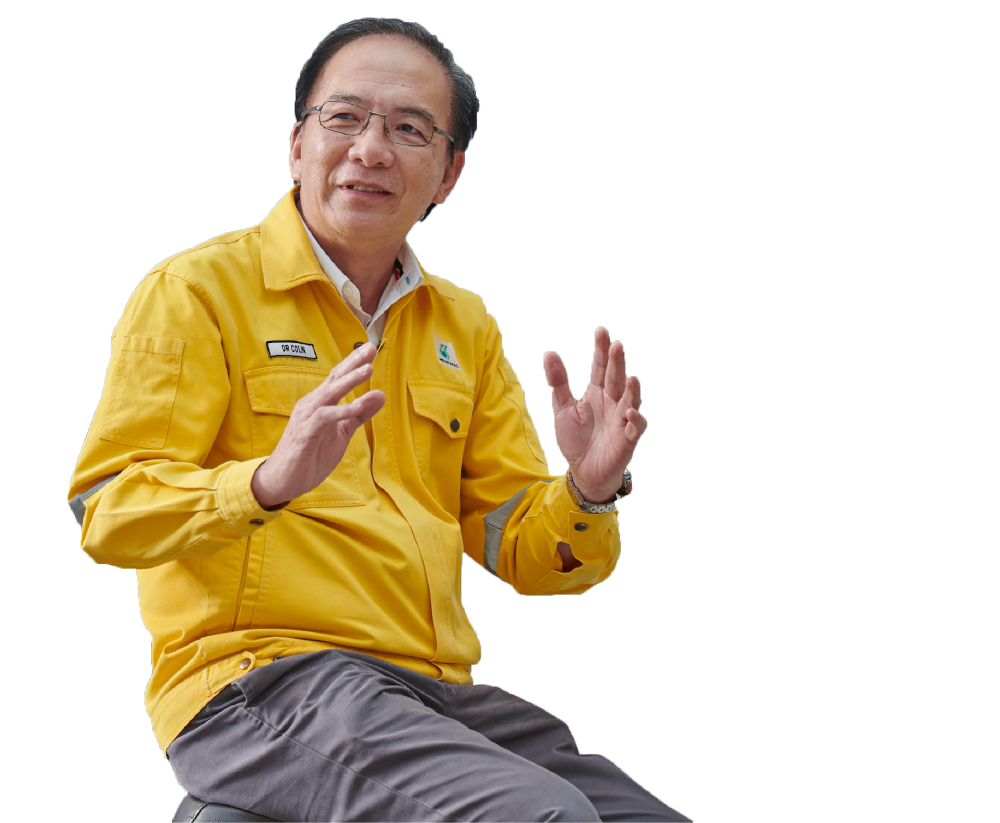
Datin Paduka Professor
Dr Teo Soo-Hwang
Chief Executive Officer, Cancer Research Malaysia (CRM)
While 50 per cent of the population of the world is Asian, we make up only 10 per cent of the genetic studies worldwide. The majority of cancer research and efforts to find new cures has been and is being conducted primarily by pharmaceutical companies and universities based in North America or Europe. As a result, research has largely been focused on western populations and cancers that predominantly affect them – breast, colon, lung, prostate, and melanoma.
There aren’t enough studies on colorectal and nasopharyngeal cancers, which make up the top 10 cancers affecting Malaysians. Additionally, the findings from the West may not apply to Asians because of genetic and lifestyle factors. Asian studies are important, urgent even, but not many are aware that organisations like CRM require long-term funding.
Established in 2000, Cancer Research Malaysia’s vision is a future free of the fear of cancer. To achieve such a bold purpose, the organisation needed equally brave and stalwart supporters from the start. Prof Teo credits two core donors that have made its work possible – including Yayasan PETRONAS which pays for approximately 70 per cent of the overhead costs. This enables CRM to focus on the real work of studies into cures, early intervention and timely adherence to treatments while competing for international grants.
“That belief that we can make a difference in Malaysia is possible because PETRONAS supports an effort by a group of people who want to do the right thing and change the way things are done in this country,” says Prof Teo.
PETRONAS has supported CRM since 2001, recently pledging an additional RM8 million to the nonprofit organisation, bringing its total contribution to RM21.5 million so far.
Yayasan PETRONAS Chief Executive Officer Lita Osman says that CRM’s work benefits all Malaysians, either directly or indirectly. “This is very much in-line with Yayasan PETRONAS’ commitment towards enriching lives for a sustainable future. That’s why CRM is a vital partner for us. From research, we will be able to understand the factors that cause the disease, find ways to curb it and control it further. We also strongly believe that social progress must be inclusive. A community cannot sustain economic growth with a heavy burden of healthcare. Therefore, our approach is prevention is better than cure.
“By providing funding, we are also nurturing young researchers in this area. At Imbak Canyon, for example, we support research in conservation and biodiversity. Establishing a better understanding of existing risk and potential factors will help us drive more effective outcomes – for our people, and for our planet,” she adds.
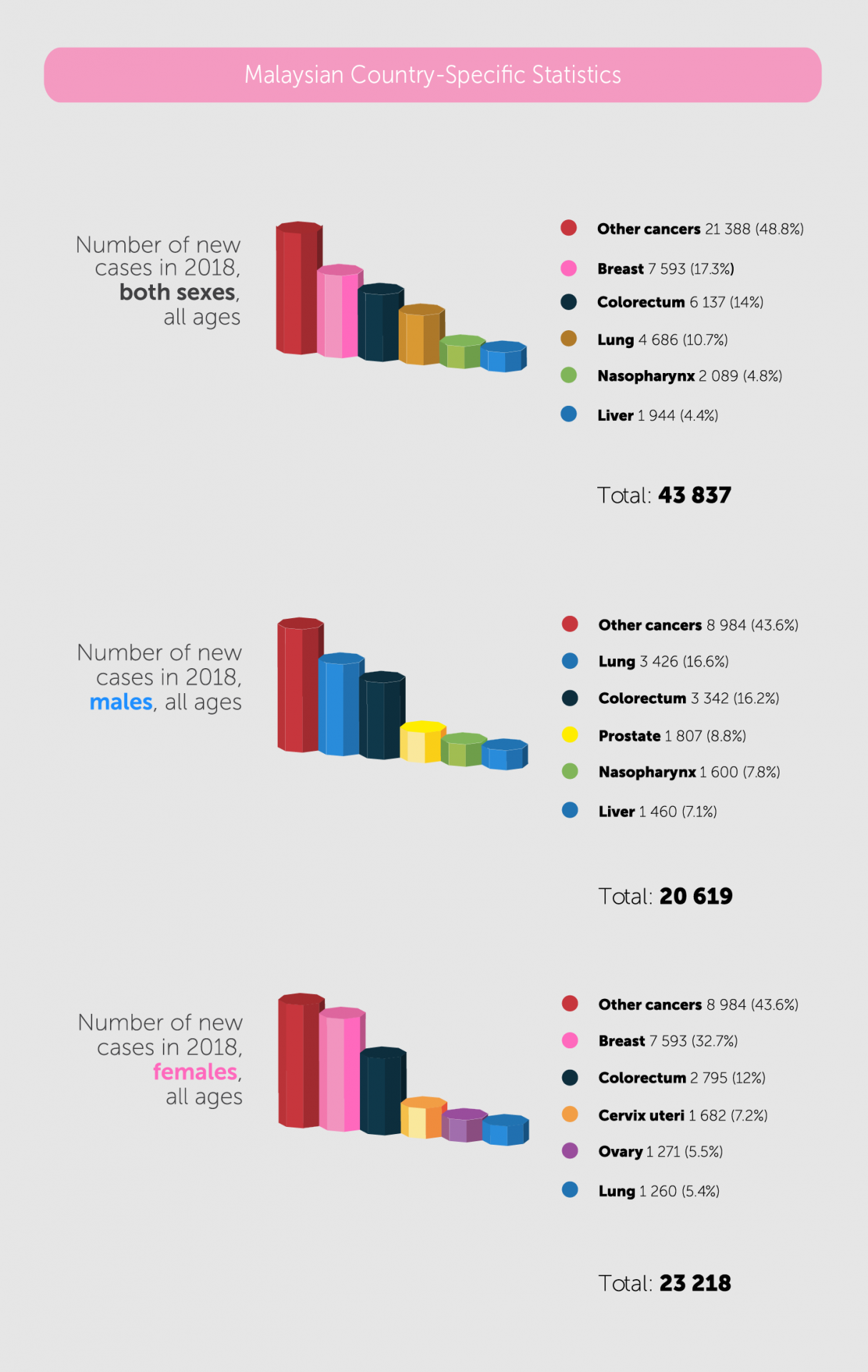
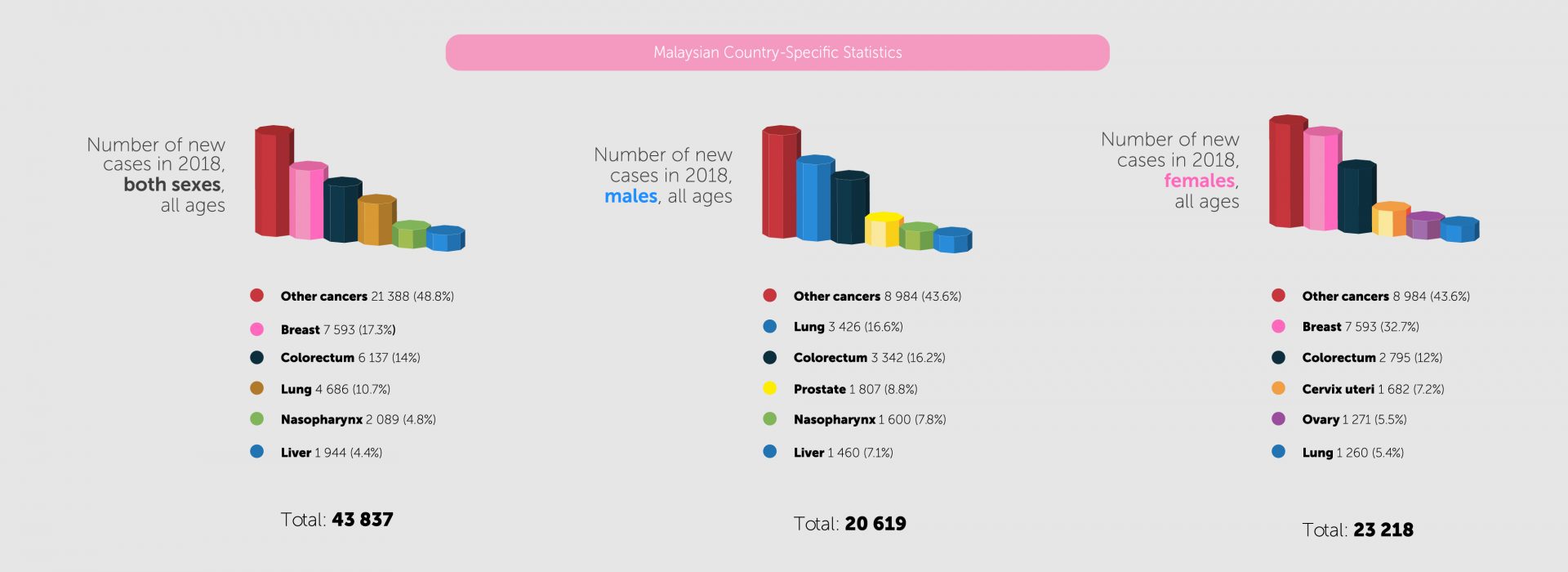
Malaysian Cancer Research on World Stage
Prof Teo remembers the early days of CRM when she had to carry a tank with liquid nitrogen to collect fresh oral cancer tissue samples from a surgical theatre.
“Today, CRM has one of the largest Asian oral cancer cell lines in the world. We use it to figure out which genes go wrong in oral cancer so that we can target them in new therapies. Understanding oral cancer has helped us develop a vaccine to boost the patient’s immune system to fight the cancers more effectively. The experiments in animals so far suggest that this therapy works beautifully,” says Prof Teo.
CRM also has a few initiatives involving breast cancer, which is the number one cancer in the country. Today, CRM has 8,000 breast cancer patients in studies. It is the largest Asian study looking into breast cancer risks. CRM is leading an effort to target breast cancer screening towards individuals at higher risk. This would potentially eliminate overdiagnosis and overtreatment while providing more equitable access to screening to people who need it most. The model combines genetic and lifestyle factors, as well as mammogram images with an Artificial Intelligence (AI) component, brought in to increase accuracy. The study brings together investigators from Japan, Korea, China, Hawaii, and California, with CRM leading these studies from Malaysia.
There is also a cancer prevention trial which measures a feature of a woman’s breast that accurately tells researchers how high her risk is. Then, with an intervention and using that measure, CRM will test to see if her risk can be reduced. This is the first time this is going to be done on Asian women.
While studies into genetic factors are important, including them in the screening process requires genetic counsellors. According to Prof Teo, there are only four to 10 genetic counsellors in this country serving a population of 32 million people. In the US, there are approximately 50,000 genetic counsellors for a 327 million population. CRM decided to explore ways to enable more genetic counselling in Malaysia.
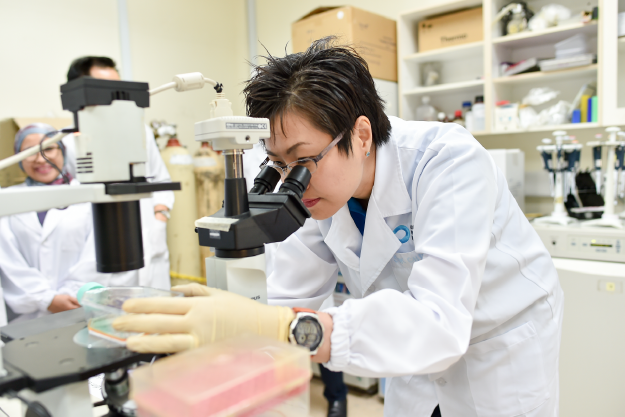
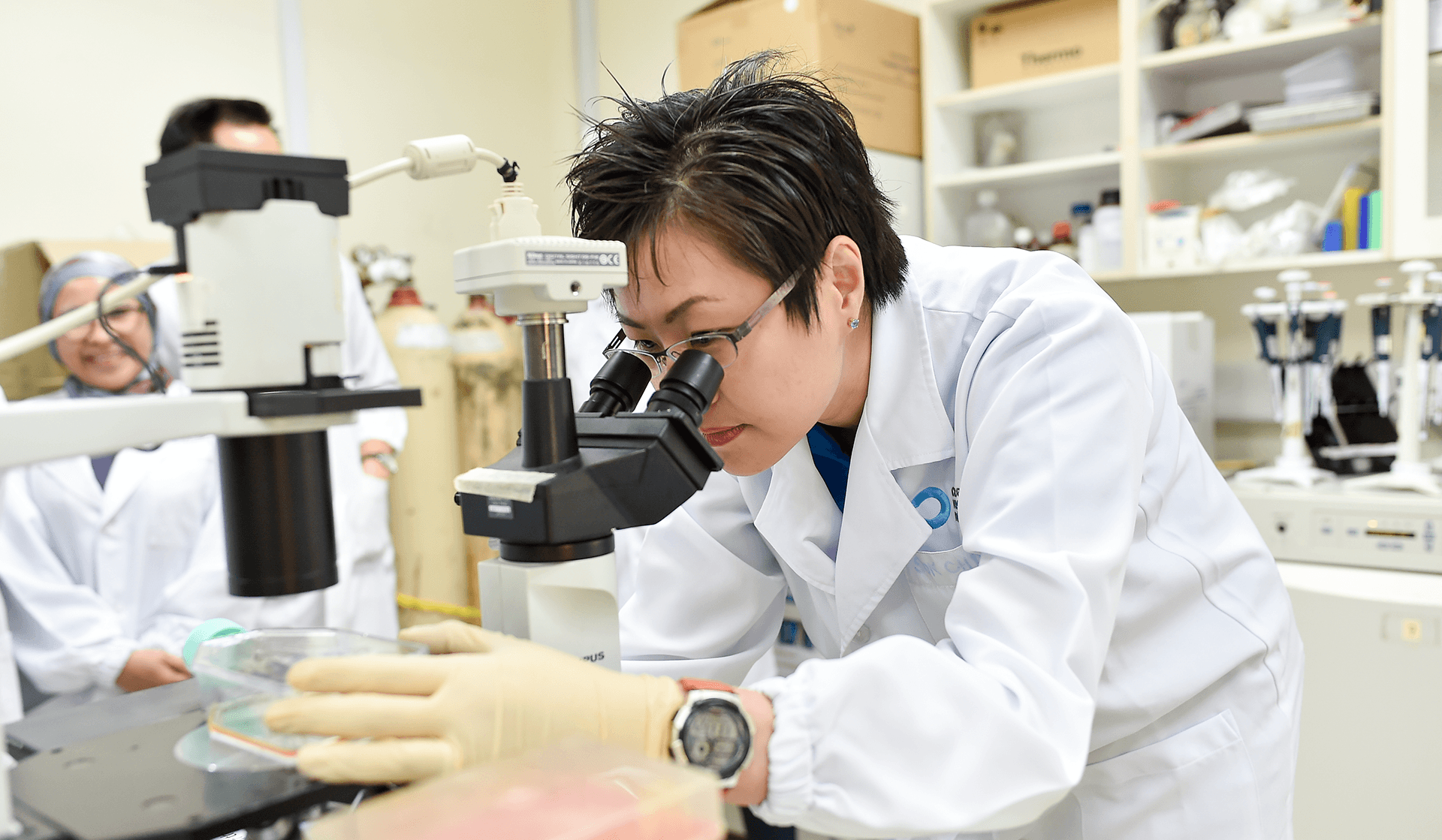
“We decided to test whether, instead of training many genetic counsellors, we could train oncologists and gynaecologists to provide basic genetic counselling. If we’re going to roll out services in a new way, we need to first establish we are not providing inferior service to patients as a consequence. We set about training doctors in 23 centres in the country to provide genetic counselling services. Now, we have 23 active centres that are competent to provide genetic counselling and genetic testing. More than 800 women have already gone through this system and we’re the first Asian country to roll out national services on this scale,” she says.
The not-for-profit organisation has also analysed 600 breast tumour samples and by the end of this year, that number should reach 1,000. It will be the largest map of Asian breast cancers in the world.
“By doing that, we have already been able to demonstrate that Asian breast cancers are slightly different and they have an enriched immune profile that we think arises from the genetic background or the lifestyle factors in Asian populations only. Because of that information, we have already put in place a clinical trial to test a new immunotherapy in Asian breast cancer patients."
"Based on our data, we suspect that we will see a response in Asian women that may not be known in Caucasian women because this profile doesn’t exist in Caucasian women,” says Prof Teo.
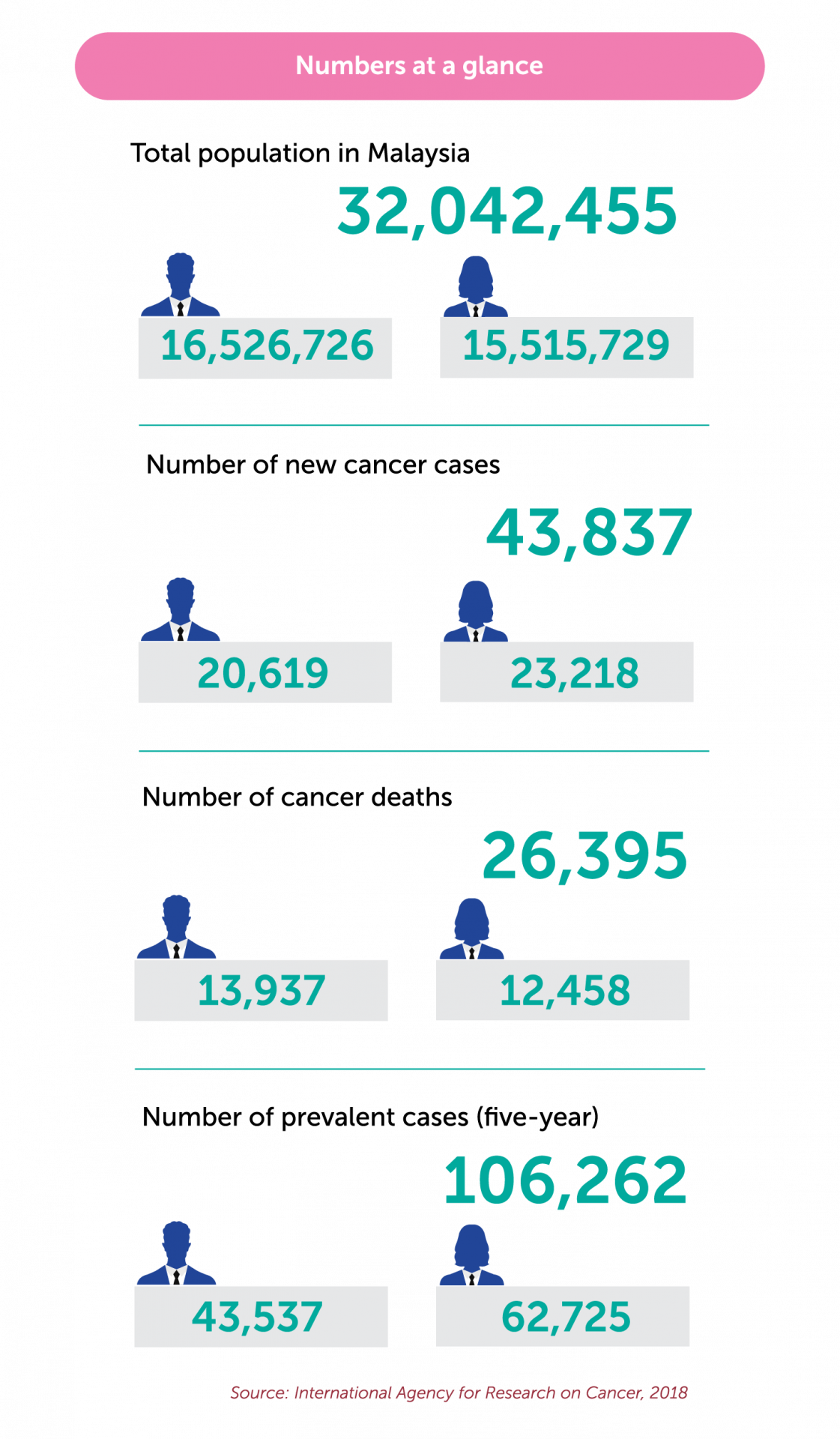
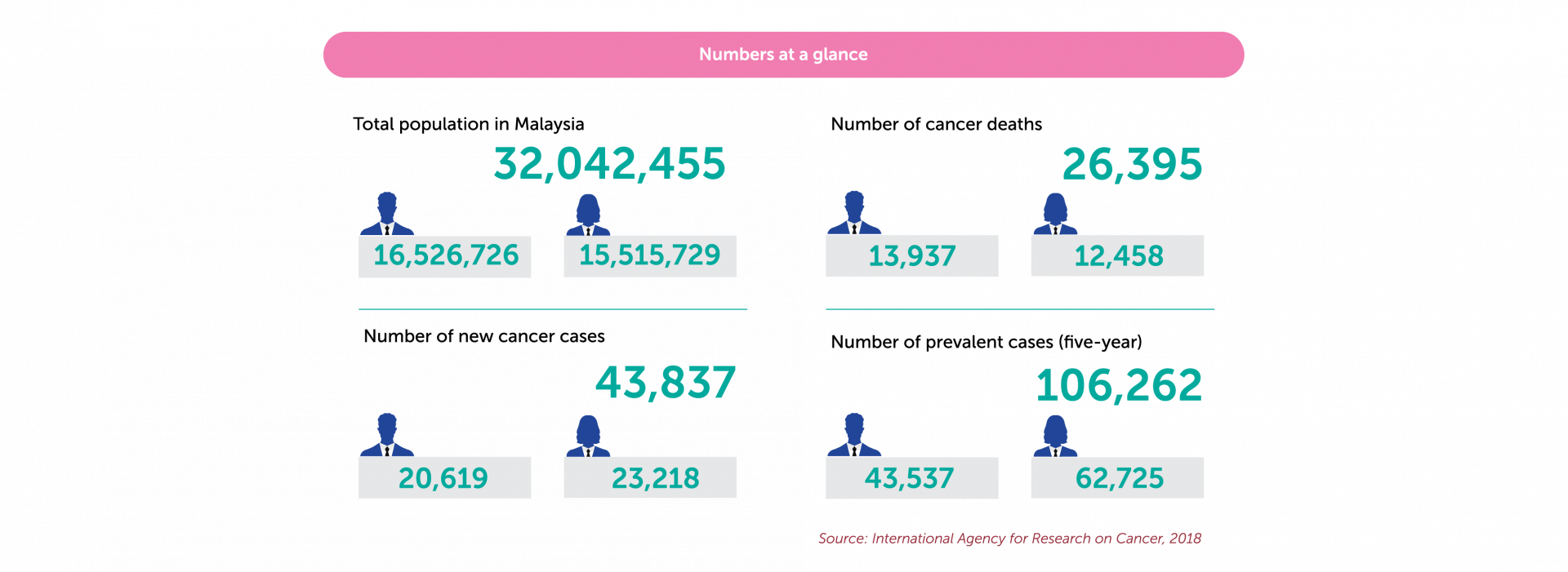
Another exciting initiative is the Patient Navigation Programme at Klang General Hospital. It was based on a similar programme formulated by American surgeon Harold Freeman, who trained at Memorial Sloan-Kettering Cancer Center in New York. CRM’s pilot project in Klang is a one-stop centre where the clinical flow can be changed to ensure timely diagnosis, access to treatment and appropriate counselling. Part of the programme involved developing decision tools that would help patients understand what was going on based on research, local cultural values and belief systems.
“We also set up a network of support for the patients to help them with daily tasks like taking the kids to school and preparing food for the family. Because of that system and the community partners we had, we were able to set up that one-stop centre where the sole aim was to make sure we leave no one behind. As a result, the timeliness of diagnosis went up from 70 per cent to over 90 per cent. We were able to ensure that the results were disclosed much faster and we were able to improve services. This is the first time anyone has set up such a system in this. By doing that, we have proven that this is the way forward,” says Prof Teo.
Partnering with the Ministry of Health, CRM has now launched three more one-stop centres in Seremban, Kota Kinabalu, and Kuching. CRM’s goal is to make sure these are scalable solutions.
Apart from this, the research organisation also has a mobile phone app that can be used for early detection of oral cancer. This app has won several awards, including a global award from the Medical Research Council to develop an AI-powered module of the app so that in future the mobile phone can be used to scan an individual’s mouth and detect if there is a suspicious lesion.
With so many milestones achieved in the past two decades, it is no surprise that CRM has secured international accolades. It is the first organisation in Malaysia to win a Collaborative Award from the London-based Wellcome Trust UK, the world’s largest medical research charity funding research into human and animal health. Wellcome Trust has traditionally funded Nobel Laureates and well-established professors. In the UK, it funds the top five per cent of scientists
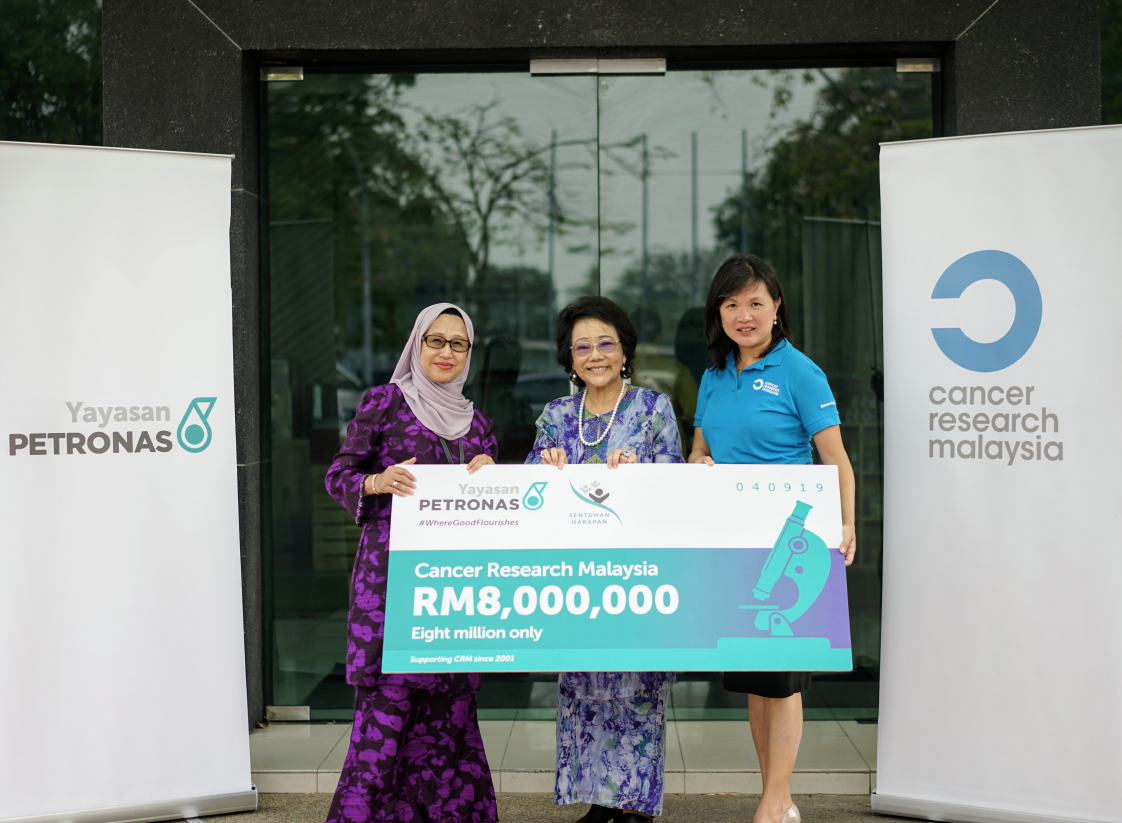
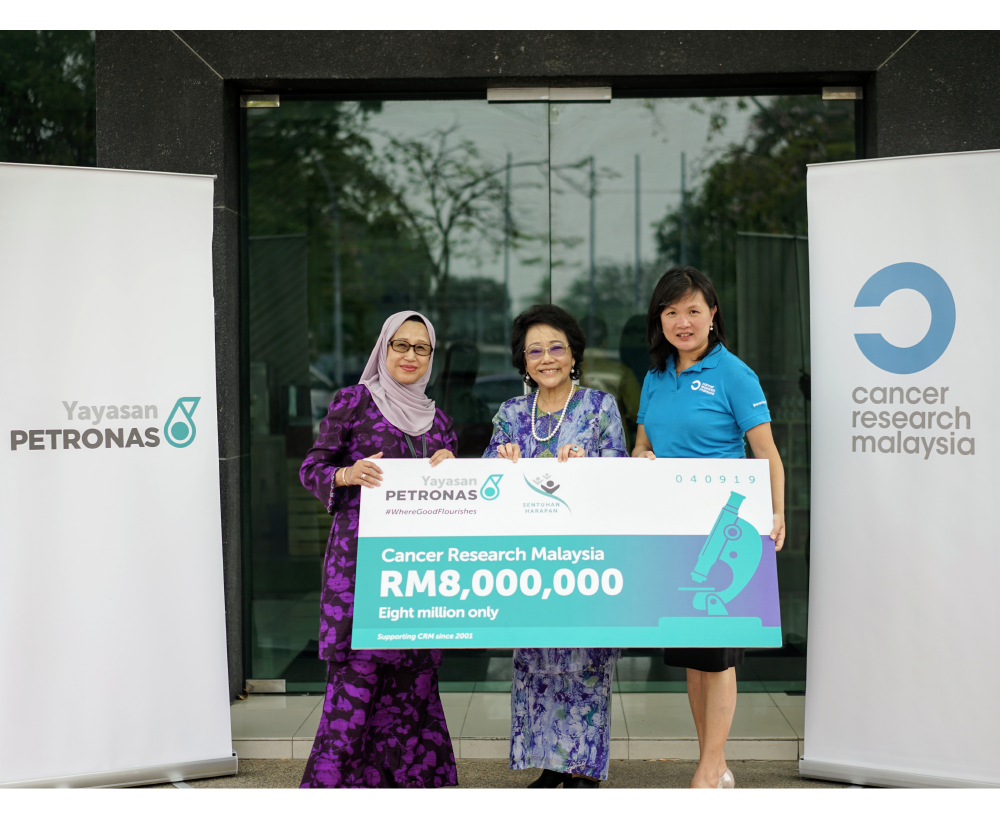
“We wouldn’t be where we are without PETRONAS. It has been one of the main donors from day one that has bought the equipment and made it possible for us to make all these discoveries. Its contributions have underpinned all our activities,” says Prof Teo.
Yayasan PETRONAS’ Lita reiterates that cancer is one of the foundation’s focus areas as it commits to supporting better health and improving the livelihood of communities. The foundation also organises talks on cancer to raise awareness amongst its employees. This year, under its Sentuhan Kasih programme and in conjunction with Hari Raya, Yayasan PETRONAS visited the children’s cancer ward in selected hospitals and conducted programmes for the children and families.
Through Petronita (association for wives and female staff of PETRONAS), PETRONAS has also supported cancer work, including through the annual Orchid Run & Ride. “Hopefully, in the future, we will have the opportunity to reach out to the rural communities to create cancer awareness as the disease can affect anyone, and the lower income group are equally at risk, with possibly lower awareness and less access to screening facilities. We might also collaborate with more NGOs like BCWA (Breast Cancer Welfare Association) which works with breast cancer patients,” says Lita.


